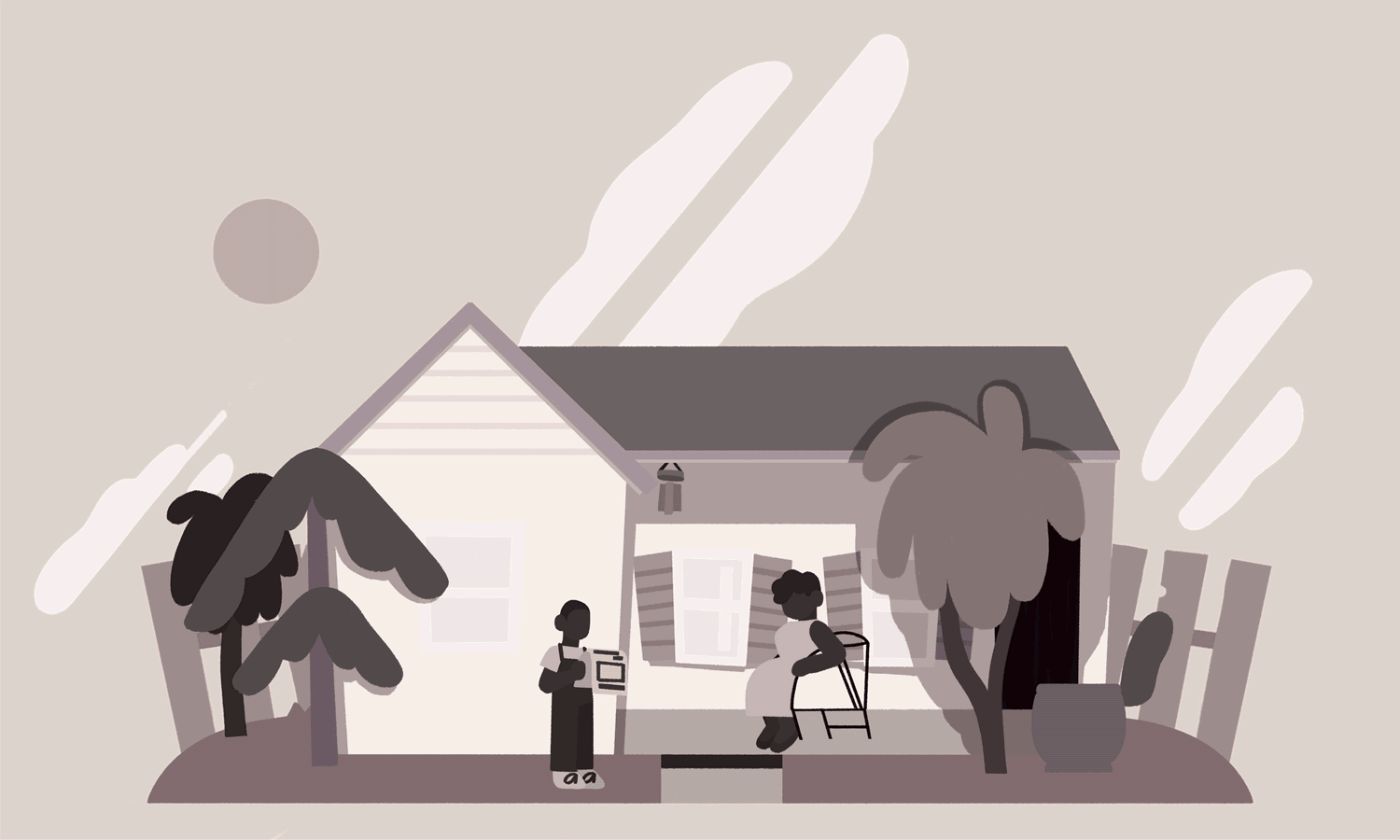
SHIDEH GHANDEHARIZADEH / NEXTGENRADIO
Basil Pursley speaks with Fredd Atkins about growing up in Newtown, where he lived through desegregation, and later became Sarasota, Florida’s first African American mayor. While gentrification continues to consume Newtown’s historic Black neighborhood, Atkins remains as an advocate and protector for the tight-knit community.
An advocate for the historically Black neighborhood of Newtown is inspired by his love for his fellow Floridians
Listen To The Story
Click here for audio transcript
My name is Freddy Lewis Stanley Atkins, I was born June the 19th, 1952, and uh, I came over here as a six-year-old.
I can remember my mother being like ‘Florence Nightingale’ and she’d go spend the night with the people sick and dying and, she’d tell “Oh, y’all be all right at home.” And so, uh, we were all right at home. She get back in the morning to make sure we get out of there to go to school, and she go to work, and we keep a trucking on.
So, uh, I come from a history of giving to our community and our people.
My own advocacy work, we’re working on not only enhancing the opportunities for education, uh, for African-American young people. But we are developing and focusing a program for African American males and help them to identify and understand the reality of the struggle and how it is best and brightest to start committing and focusing yourself as early as possible because if you wait too late, you have a case and that case will dictate the rest of your life.
If I could talk to young Freddy Lewis Stanley Atkins, also known as “Glossie”, what I would tell him most is to study harder, read more, commit to a greater goal. In the beginning, uh, his goals wasn’t big enough.
I could have gone anywhere in the world and been fine. I’m tall, dark, and handsome with a big voice and a big brain. So I thought all of them things would work to my advantage, except in a racist system. But I would’ve gone anywhere, but I chose to stay here in Florida, and especially Sarasota because my older brothers and sisters told me to.
Because like, I’m the middle child, so I stayed here with mother and, and it wasn’t a problem for me. We worked it out.
Uh, she didn’t have any money and I went to college part-time during the fall. I finally got a degree from the University of South Florida after going to Manatee Junior College, getting a degree from there.
But in that process of loving my mother and taking care of my two younger siblings, I started my social interaction in my greater community and I developed attributes that was admired and respected.
I want to continue to grow. I want to be able to, uh, develop an outstanding giving program for this community, so that we can help the poor people in this community.
So that’s who I am and that’s who I continue to be, and I’m, uh, I’m fine with me. And now I’m 70 years old, and I’m so thankful that I’m still standing.
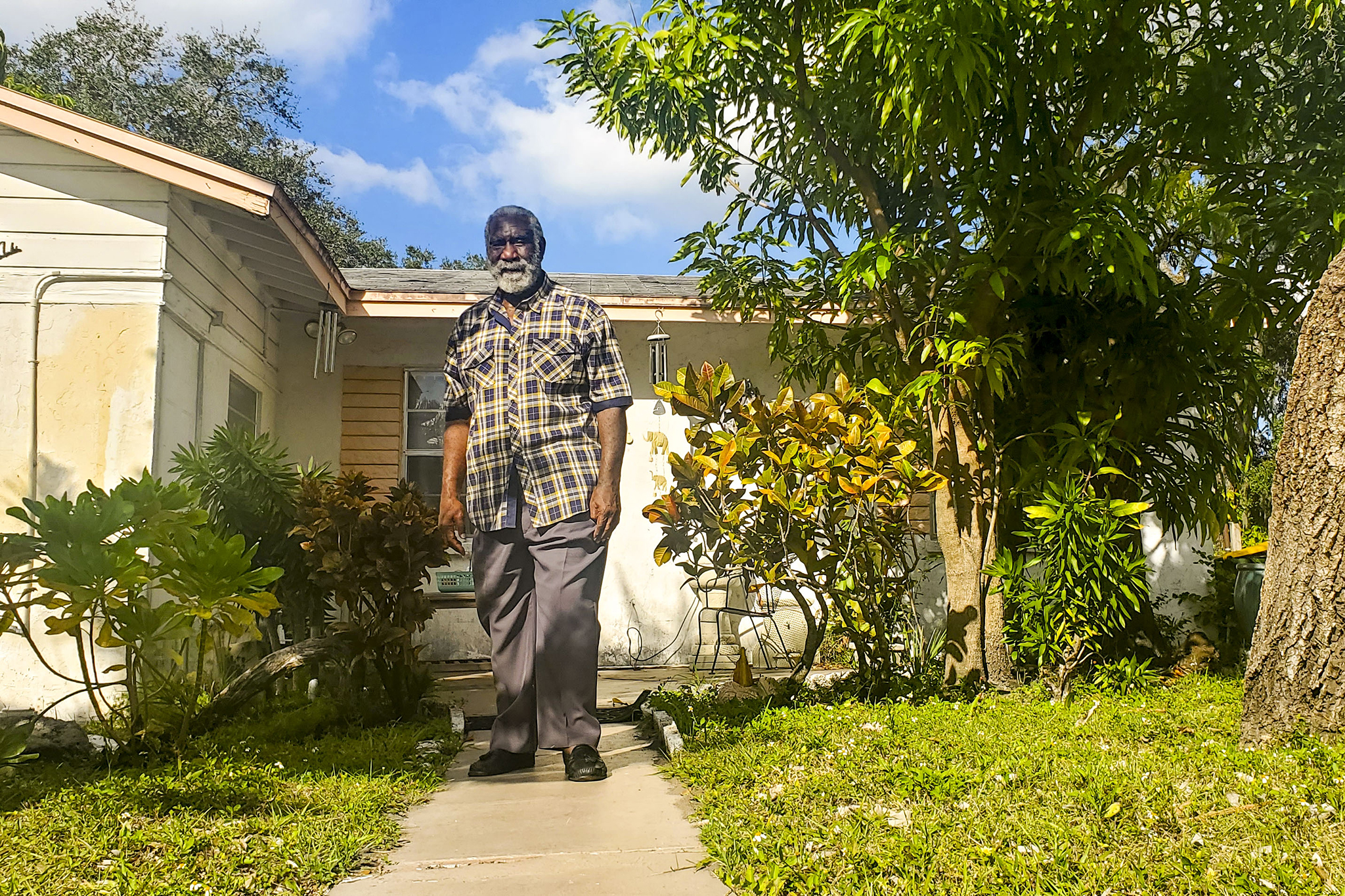
Fredd Atkins stands in front of his childhood home in Newtown. The house was built during the earliest phases of the neighborhood, and was one of the first concrete structures in the area, according to Atkins. His family still owns and rents out the house to members of the community. Monday, Jan. 2, 2023.
BASIL PURSLEY / NEXTGENRADIO
Fredd “Glossie” Atkins, 70, grew up in Newtown, a historically Black community in Sarasota, where he lived through desegregation, and has since taken on the roles of leading, uplifting and protecting his community. He’s continuously motivated to fight for his Florida hometown through his desire to take care of and connect with the people who live here.
Newtown lies on the edge of Sarasota County, wedged between a few colleges and the luxurious arts district. The historic Black community has continued to thrive after decades of gentrification and political warfare.
But Atkins recalls when Newtown wasn’t all upscale apartments, and his childhood home was the only concrete structure in the area.
Atkins remembers his mother becoming a foster mom for disenfranchised children across the area. “Now you know what that meant? I became the foster dad,” explained Atkins.
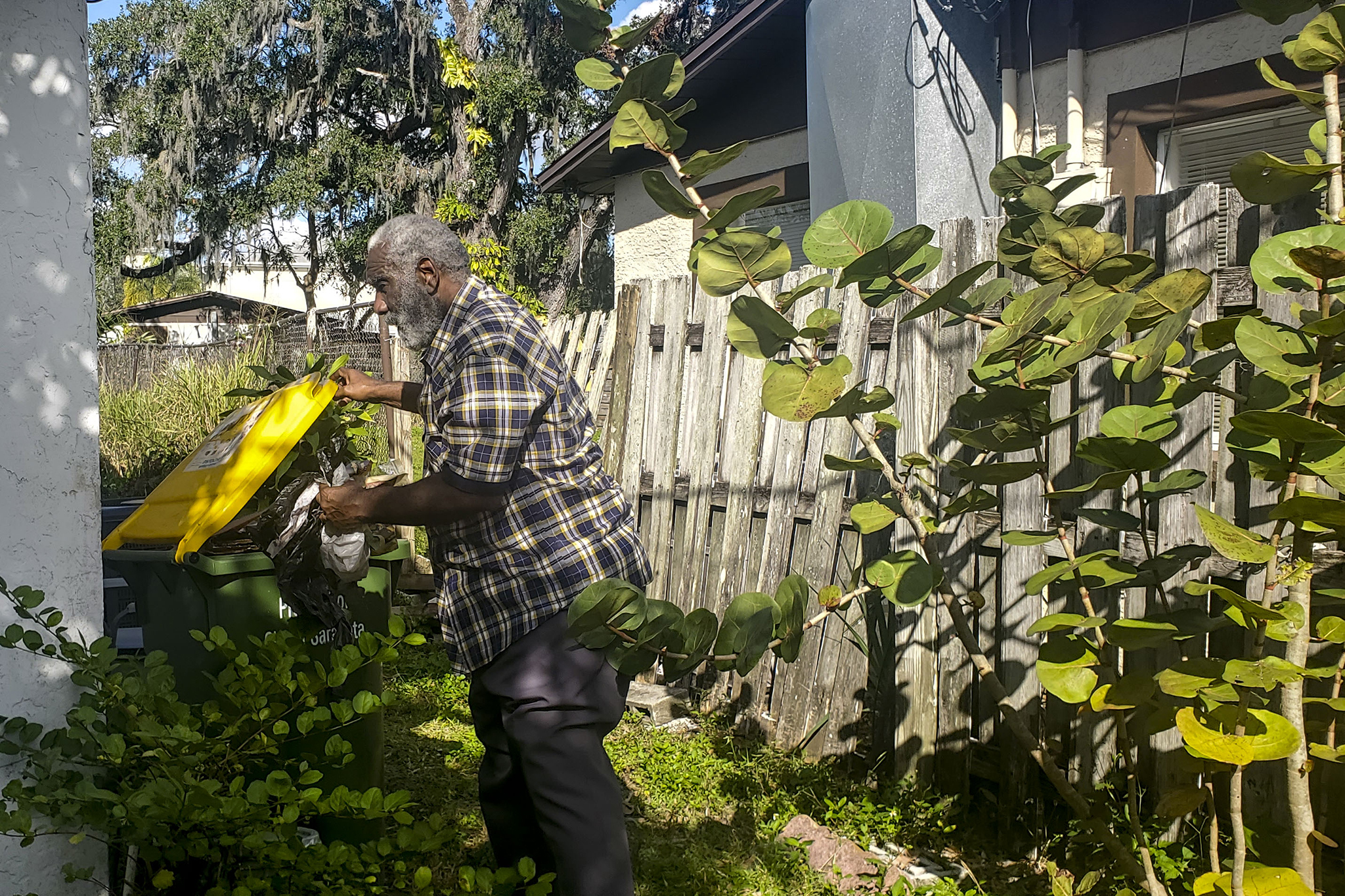
Atkins picks up trash in his childhood home’s lawn.
BASIL PURSLEY / NEXTGENRADIO
“I can remember my mother being like Florence Nightingale,” Atkins said. “She’d go spend the night with people sick and dying, and she’d tell, ‘Oh, y’all be all right at home.’ And so, we were all right at home.”
“I come from a history of giving to our community and our people,” Atkins continued.
He settled into the role of caretaker growing up, while watching over his siblings, mother and even the neighborhood.
“I’ve got a history of cleaning up,” Atkins said. “I kind of fell into a habit. I cleaned up at my house this morning as I walked out to my car, picking up the trash outta the road, making sure things get picked up.”
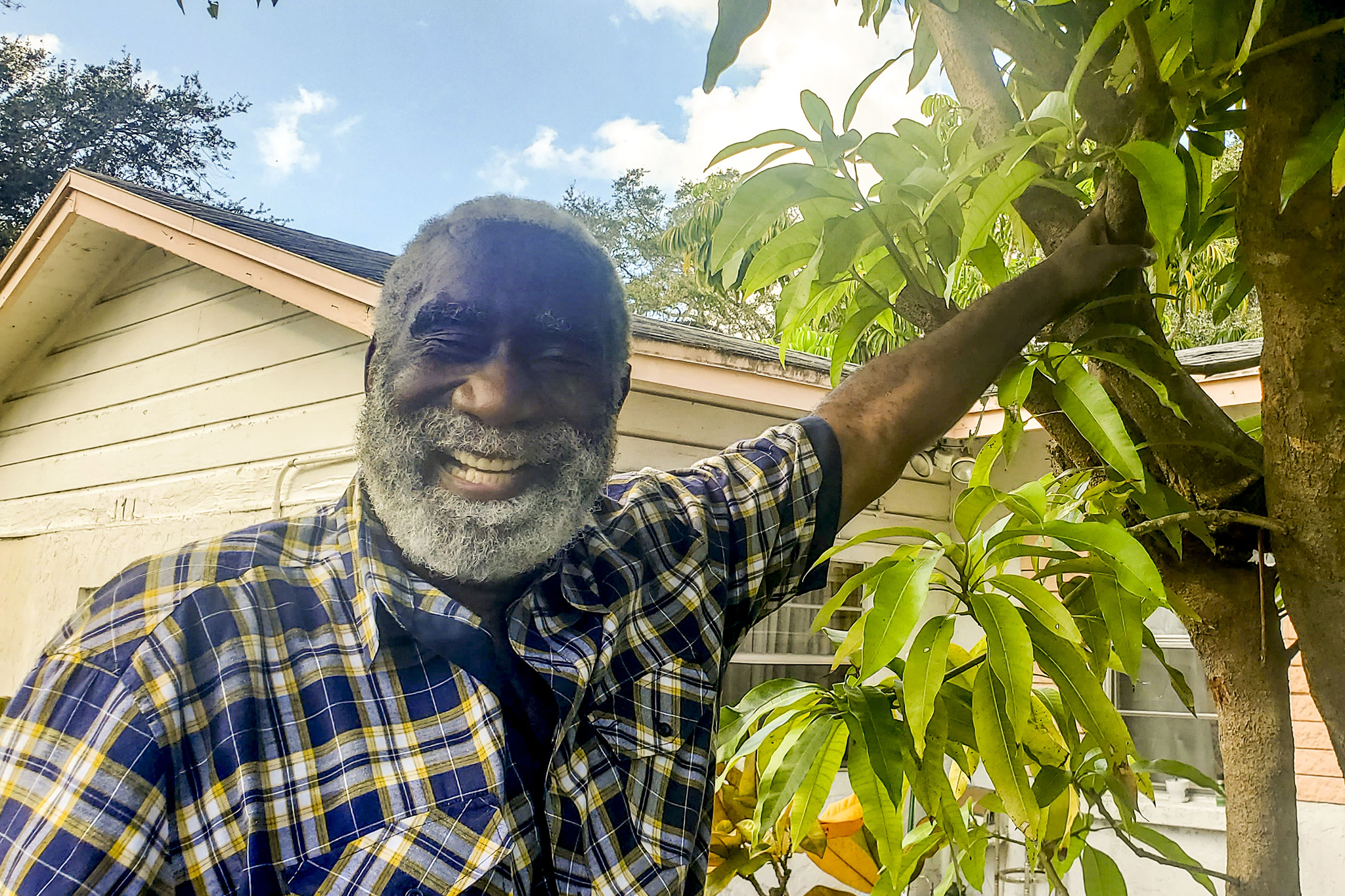
Atkins stands with the mango tree in front of his childhood home. As an adolescent, Atkins recalls taking care of the landscaping around the home including planting this mango tree to provide his mother shade for her porch.
BASIL PURSLEY / NEXTGENRADIO
Growing up, Atkins had a strong desire to better himself — and a strong sense of justice, always wanting to do things his own way to get the job done.
“I was one of them kids that I was always wanting to read,” expressed Atkins, “but I was a magazine and newspaper reader.”
Atkins said that he taught his mother how to read and that when “it was time to read the Bible, I was the reader.”
He described reading the newspaper to his grandmother, keeping her and himself updated on current events.
Atkins’ strong sense of justice and value for education coalesced at 17, when he and his friends staged boycotts of the local Newtown schools when the county closed Booker Elementary school, which was the closest and most accessible school for the children in the area.
In his 20s and 30s he was pushed to become a community leader and run for city commissioner. He became the first African American in Sarasota to be elected in the role and served a total of 18 years in multiple sessions. During his time as city commissioner, he was also appointed to the position of mayor of Sarasota, also becoming the first Black person in the position.
Most recently, he lost a hotly contested race for county commissioner – where he had hoped to be the first democrat to serve on the board in 50 years.
“You have to understand that it was closely contested because we worked our butts off. We appreciated all the support that we got, but we had to work for it.”
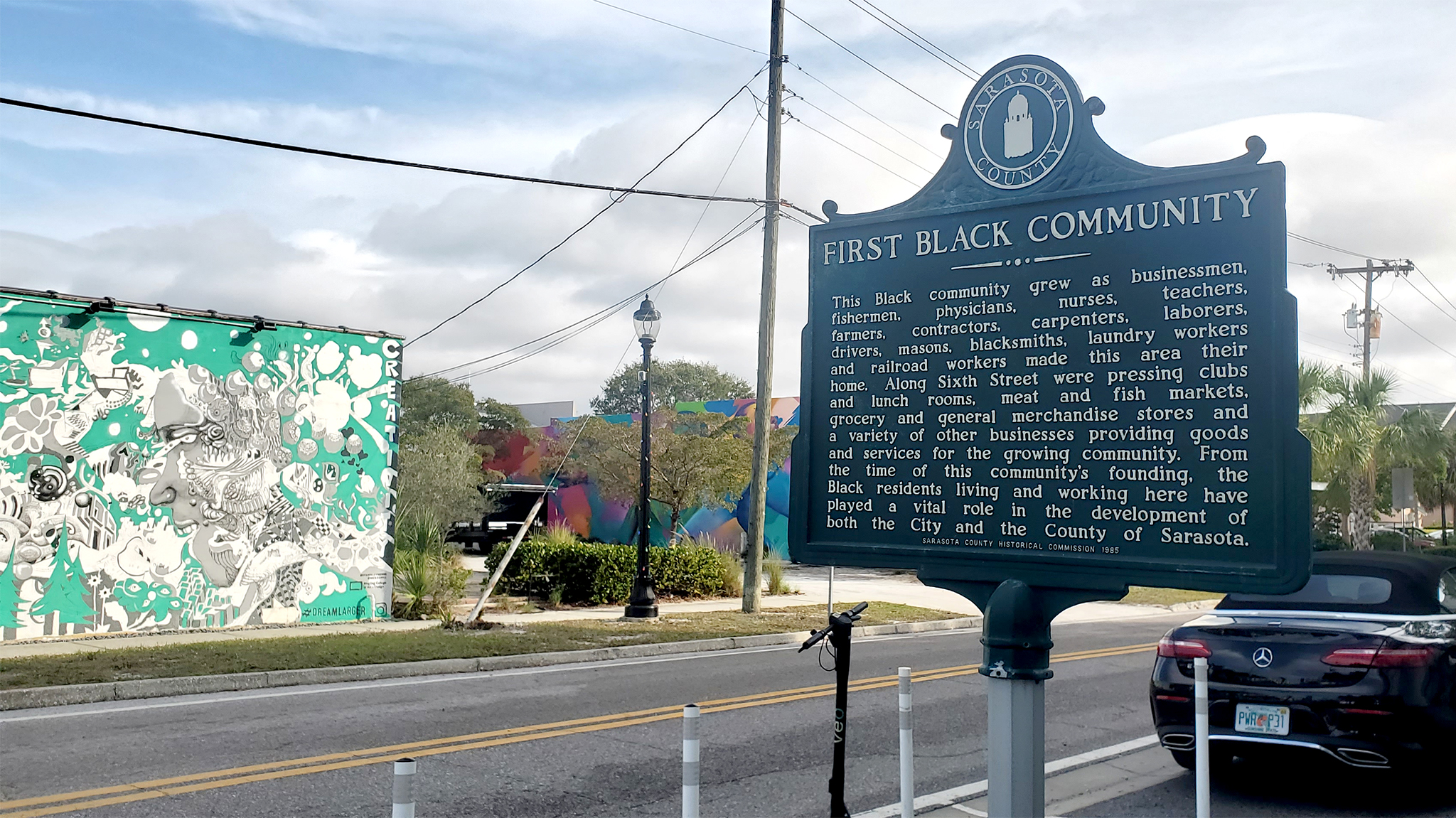
A historic marker in Sarasota Fla., Wednesday, Jan. 4, 2023.
BASIL PURSLEY / NEXTGENRADIO
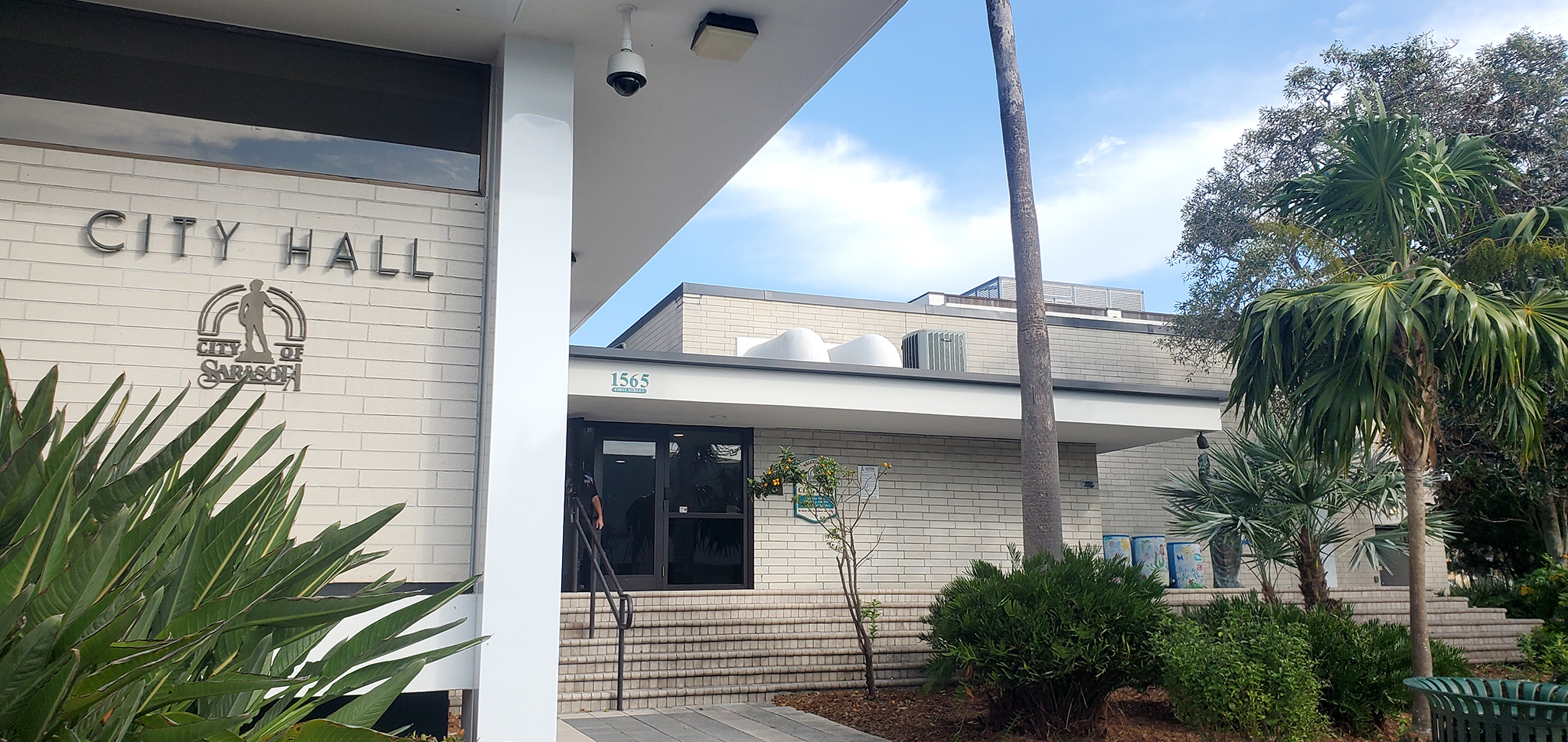
The City Hall of Sarasota, where Atkins conducted business during his time as city commissioner and mayor. Wednesday, Jan. 4, 2023.
BASIL PURSLEY / NEXTGENRADIO
Despite his local political prominence, Atkins considers himself “primarily a social activist.”
“We are working on enhancing the opportunities for education for African American young people,” Atkins said of his current advocacy work, adding that he is also “developing and focusing a program for African American males to help them to identify and understand the reality of the struggle, and how it is best and brightest to start committing and focusing yourself as early as possible.”
He continues to fight for his African American community by helping many young Black people understand privilege and oppression, and how to continue fighting for their own rights, especially their rights to a good education.
“You know, I do what I do because I love my people, I love my family, I love my community, and I started from a whole long line of givers … I could have gone anywhere in the world and been fine,” Atkins explained. “But I chose to stay here in Florida, and especially Sarasota.”